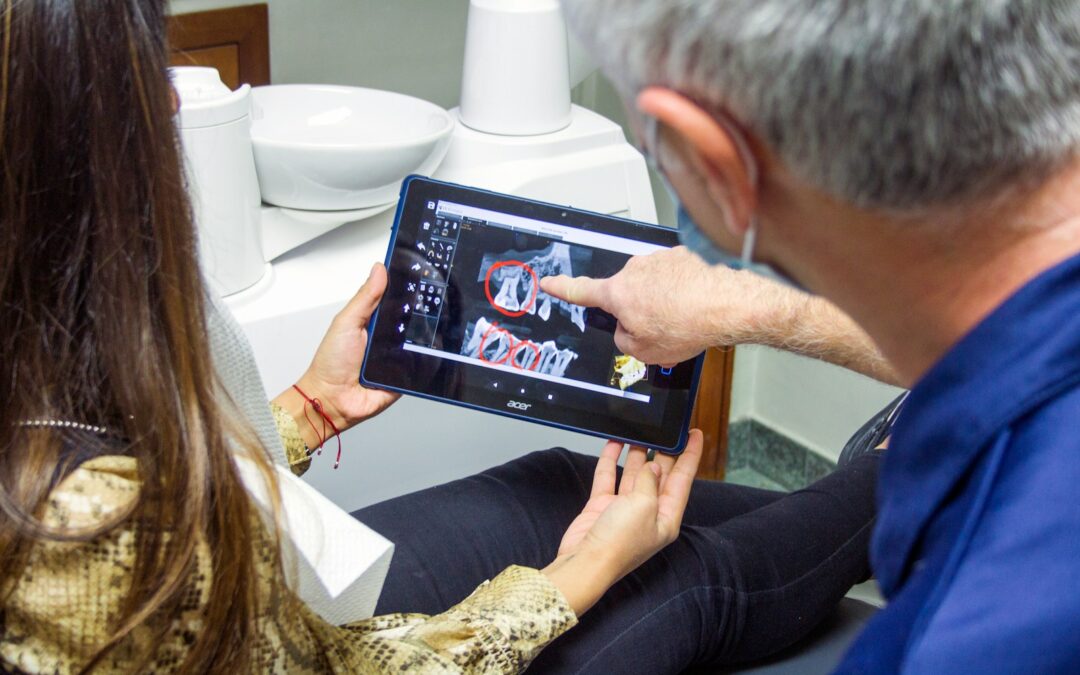Transforming Healthcare with AI-Enhanced EHR Systems
The Evolution of EHR Systems
EHR systems have revolutionized the healthcare industry, providing a digital framework for managing patient information. Initially designed to replace paper records, EHR systems now play a critical role in improving patient care, streamlining operations, and enhancing communication among healthcare providers. As we look to the future, the integration of Artificial Intelligence (AI) promises to further transform these systems, enabling predictive analytics, personalized care, and more efficient healthcare delivery. In regions like Saudi Arabia and the UAE, where technological innovation is a priority, the adoption of AI-enhanced EHR systems is set to redefine healthcare practices and outcomes.
Predictive Analytics for Improved Patient Outcomes
One of the most significant advancements in EHR systems is the incorporation of predictive analytics powered by AI. By analyzing vast amounts of patient data, AI algorithms can identify patterns and trends that may indicate potential health issues before they become critical. This proactive approach allows healthcare providers to intervene early, potentially saving lives and reducing the burden on healthcare systems. In cities like Riyadh and Dubai, where healthcare infrastructure is rapidly evolving, predictive analytics can support public health initiatives and improve overall community health. The ability to anticipate patient needs and tailor treatments accordingly represents a major leap forward in medical care.
Personalized Care Through AI Integration
Personalized care is another crucial benefit of AI-enhanced EHR systems. By leveraging AI, healthcare providers can develop individualized treatment plans based on a patient’s unique medical history, genetic information, and lifestyle factors. This level of customization ensures that patients receive the most effective treatments, improving outcomes and enhancing patient satisfaction. In the UAE and Saudi Arabia, where healthcare quality is a key focus, personalized care can address specific health challenges prevalent in these regions, such as diabetes and cardiovascular diseases. The integration of AI in EHR systems thus not only advances medical science but also aligns with national health goals.
Change Management in Healthcare
Implementing AI-enhanced EHR systems requires a strategic approach to change management. Transitioning to advanced EHR systems involves significant changes in workflows, data management practices, and staff training. Effective change management strategies, supported by executive coaching services, can facilitate this transition. Leaders in healthcare organizations need to be equipped with the skills to manage resistance, communicate the benefits of new technologies, and foster a culture of innovation. In regions like Saudi Arabia and the UAE, where the healthcare sector is expanding rapidly, managing this change effectively is crucial to realizing the full potential of AI in EHR systems.
Ensuring Effective Communication
Effective communication is essential for the successful implementation of AI-enhanced EHR systems. All stakeholders, including healthcare providers, IT professionals, and patients, need to be informed about the changes and their benefits. Management consulting firms can assist in developing comprehensive communication strategies that address concerns and highlight the advantages of AI integration. In cities like Riyadh and Dubai, where diverse populations and healthcare needs exist, clear and inclusive communication can ensure that the transition to AI-enhanced EHR systems is smooth and well-received. Engaging stakeholders through workshops, training sessions, and continuous feedback mechanisms can build trust and support for the new systems.
Navigating the Challenges
While the benefits of AI-enhanced EHR systems are significant, there are also challenges to consider. Data privacy and security are paramount, given the sensitive nature of health information. Ensuring that AI systems comply with regulations and ethical standards is critical. Additionally, the integration of AI requires substantial investment in technology and infrastructure. However, the long-term benefits, including improved patient outcomes and operational efficiencies, justify these investments. In the UAE and Saudi Arabia, where governments are committed to advancing healthcare through technology, navigating these challenges with a strategic approach can lead to groundbreaking improvements in healthcare delivery.
#FutureOfEHRSystems #AIInHealthcare #SaudiArabia #UAE #Riyadh #Dubai #ChangeManagement #ExecutiveCoaching #EffectiveCommunication #BusinessSuccess #ManagementConsulting #ArtificialIntelligence #Blockchain #TheMetaverse #GenerativeAI #LeadershipSkills #ManagementSkills #ProjectManagement
























